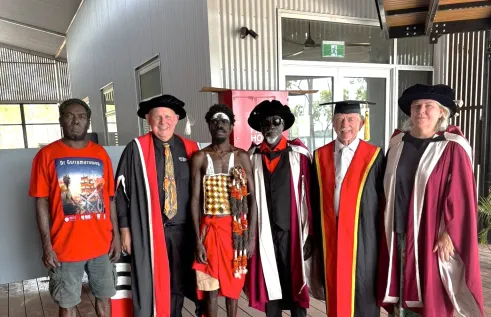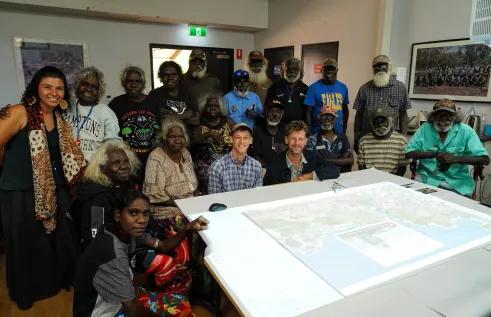News Article
Research tracks COVID-19 impacts on the NT’s population
Researchers have provided a first glimpse into the impacts of the COVID-19 pandemic on population dynamics, finding that sentiments towards remaining in the Northern Territory had grown since before the pandemic, especially for young people.
The team of demographers at Charles Darwin University’s Northern Institute have released research today showing the global pandemic has changed sentiments towards coming to, staying in or leaving the Northern Territory.
Dr Andrew Taylor said the team responded to the need to track increased dynamism for migration created by the pandemic and national and international border restrictions.
He said the ‘COVID-Update’ survey, which focused on current and former Territory residents would build on the 2019 ‘The Territory and Me’ survey about people’s reasons for and experiences of living in the NT.
“Our research is some of the first population-orientated COVID-19 research in Australia,” Dr Taylor said.
“It has enabled us to track whether people feel they are more or less likely to live in and stay living in the Territory as a result of the pandemic.”
Dr Taylor said a critical finding from the ‘COVID-Update’ survey was the increased willingness of Territory residents to stay in the NT during the next two years.
“This finding was evident across all age groups and particularly for our large ‘Early Career’ population group (18-29 years),” he said.
“Likewise, people who were residents in the Territory for less than a year were almost twice as likely to say they would be living in the Territory in two years compared to longer-term residents.”
He said that while the research showed improved sentiments for population retention, there was no evidence of an increase in new resident arrivals to the Territory.
Dr Taylor said that ABS data for the September quarter of 2020 aligned with the research findings that fewer people were leaving the NT rather than more arriving. It also showed a net migration to Darwin from within the Territory, which helped Greater Darwin record a minor positive net migration of eight people for that quarter.
“Currently there is an opportunity to influence population growth due to the immediate effect of the pandemic through retention initiatives or policies, rather than just attraction,” he said.
“COVID-19 has shifted many people’s sentiments towards staying, or from indicating they would leave within two years.
He said the work showed a clear policy opportunity exists to positively influence population retention in the Territory, including reducing outflows once national and international border movements free-up.
“While we are not yet part of the rural migration movement that appears to be growing cities close to Australia’s major urban centres, we do see the pandemic fundamentally changing our population dynamics,” Dr Taylor said.
“We need ongoing research to monitor Territory migration sentiments to support efforts for economic recovery.”
The full report is available here
Related Articles

First Yolŋu awarded a PhD through CDU
In an Australian first during a special conferral celebration that took place in remote East Arnhem land at Yalakun outstation last week, a late Yolŋu leader from East Arnhem received a Posthumous PhD.
Read more about First Yolŋu awarded a PhD through CDU
3D printed map brings Elders’ knowledge to life
Multimedia and 3D technology are the latest tools being used by Elders in Maningrida to share their traditional knowledge and ancient stories, facilitated by a collaboration between Charles Darwin University academics.
Read more about 3D printed map brings Elders’ knowledge to life
Research reveals how Australians really feel about the world's largest proposed solar farm
Australians are substantially supportive of renewable megaprojects, but their approval begins to wane if the produced energy doesn’t benefit them, according to a new study examining social acceptance of the proposed world’s largest solar plant.
Read more about Research reveals how Australians really feel about the world's largest proposed solar farm
